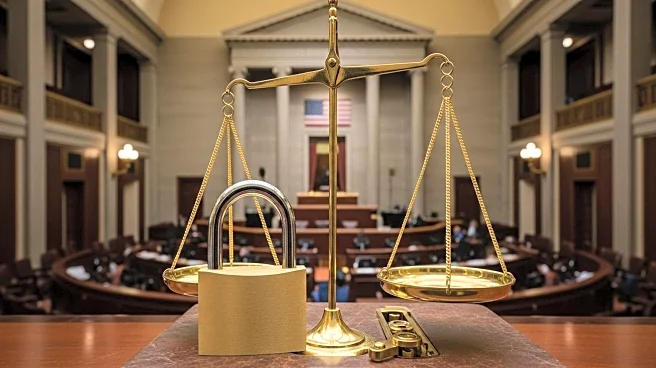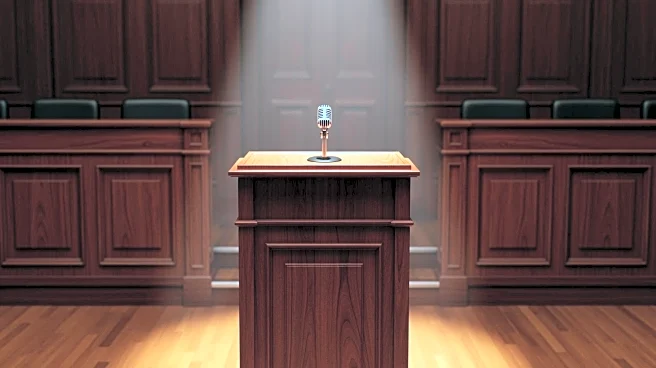What's Happening?
The U.S. government shutdown has reached its fourth day, with Congress unable to reach an agreement to restore federal funding. The Senate has repeatedly failed to advance competing plans to temporarily fund the government. A Republican proposal, which has passed the House, aims to fund the government through November 21, while a Democratic counterproposal seeks to extend funding through October, including an extension of pandemic-era health care tax credits. Senate Majority Leader John Thune has indicated that negotiations are complex, with no clear resolution in sight. The impasse persists as the Senate requires a 60-vote threshold to pass the funding bill, necessitating bipartisan support.
Why It's Important?
The ongoing government shutdown has significant implications for federal operations and public services. The inability to reach a funding agreement affects various sectors, including transportation projects and federal employment. The White House has begun implementing spending cuts, which some Democrats argue disproportionately impact areas with Democratic voters. The shutdown highlights the deep partisan divide in Congress, with Republicans accusing Democrats of holding the public hostage, while Democrats criticize the administration's approach as unconstitutional. The situation underscores the challenges of governance in a divided political landscape, with potential economic and social repercussions if the shutdown continues.
What's Next?
As the shutdown continues, pressure mounts on Congress to find a resolution. The Senate is not expected to hold further votes over the weekend, but discussions may continue informally. The White House's decision to cut programs and spending could face legal challenges, as Democrats argue these actions are unconstitutional. The outcome of these lawsuits could influence future negotiations and set precedents for handling government shutdowns. Stakeholders, including federal employees and affected communities, await a resolution that restores funding and stabilizes government operations.








